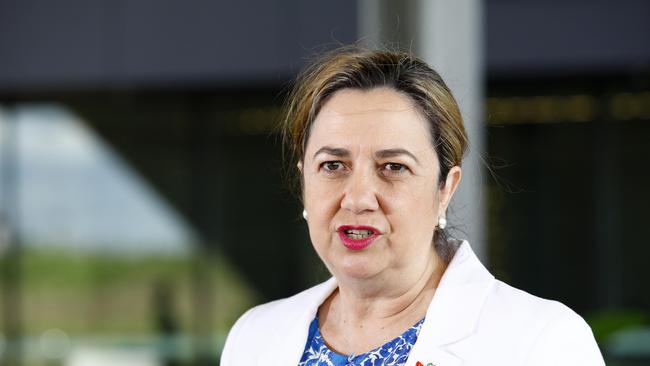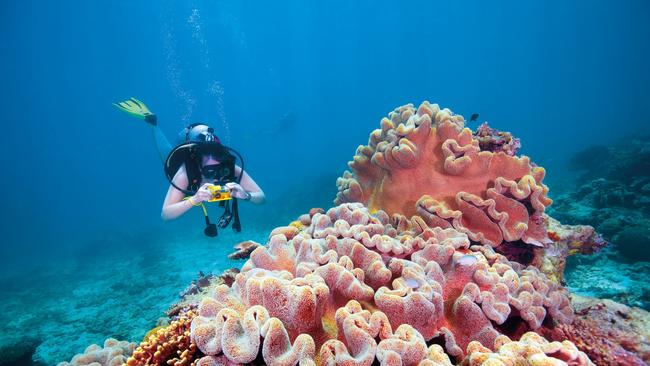Annastacia Palaszczuk fears over Queensland’s tourist hotspot
Queensland’s Premier says everyone needs to ‘do their part’ as she addresses her big fear for the state.
Queensland Premier Annastacia Palaszczuk says she’s troubled by reports of another coral bleaching event on the Great Barrier Reef as an international team arrives to assess whether the site is healthy enough to retain its World Heritage status.
Speaking in Proserpine on Tuesday, Ms Palaszczuk expressed concern another widespread bleaching had occurred between Innisfail and Mackay had occurred at the same time a UNESCO reef monitoring mission was preparing to conduct research on the tourism jewell.
UNESCO is set to vote in June whether the reef’s status should be downgraded to “in danger” after last year saying it was under threat from water pollution and climate change, and its status should be downgraded.
A draft decision is expected to be released before the crucial vote.

Ms Palaszczuk said the matter was worrying both for her and for the federal government, and proved that “everyone has got to play their part” in tackling climate change.
“It’s a partnership between the Federal Government and the State Government in terms of making sure that our reef is there for future generations,” she said.
“It has had bleaching episodes in the past, and now that we’ve had the international borders open it’s definitely … a drawcard for international tourism as well as national tourism.”
The Great Barrier Reef Marine Park Authority last week reported severe bleaching to 60 per cent of the corals along the 500 kilometre stretch of water, with the most severe cases around the Townsville region.
Bleaching occurs when water warms too severely and forces coral to expel the algae living in their tissue, causing their vibrant colours to fade and turn white.

Coral is not dead when it is bleached – and it can recover – but it is at higher risk of starvation and disease.
There have been several bleaching events over the past two decades – the most recent being in the summer of 2019-20 – with this latest occurrence coming at a time where matters of climate are occupying increasing political capital.
Ms Palaszczuk on Tuesday said her government had tipped $100 million into the reef, and she pointed to last week’s announcement that rebates would be offered on certain models of electric cars as evidence she was taking climate change seriously.
She also praised people for putting solar panels on their roofs.
There was, however, no mention of whether Queensland would be improving its emissions reduction targets, or whether it would be reducing its reliance on fossil fuel industries that have previously been credited as harmful to the reef.
Queensland heavily criticised by environment groups when it struck a royalties deal with Adani on the eve of the 2020 state election election, a signal of support for the company’s Carmichael coal mine seemingly at odds with the threat posed to the reef.

Queensland has committed to net zero by 2050 and is focused on achieving 50 per cent renewable energy by 2030, but its goal to cut emissions 30 per cent below 2005 levels over the next eight years is only slightly better than the federal government’s target of 28 per cent.
Incidentally, Prime Minister Scott Morrison was also in North Queensland on Tuesday to announce a $60m tourism package.
He was not asked about the health of the Great Barrier Reef during his press conference.
Environment Minister Sussan Ley has previously defended her government’s record on protecting the reef and last month argued against UNESCO’s threat to downgrade the reef, saying global warming was a threat to all world Heritage sites.


